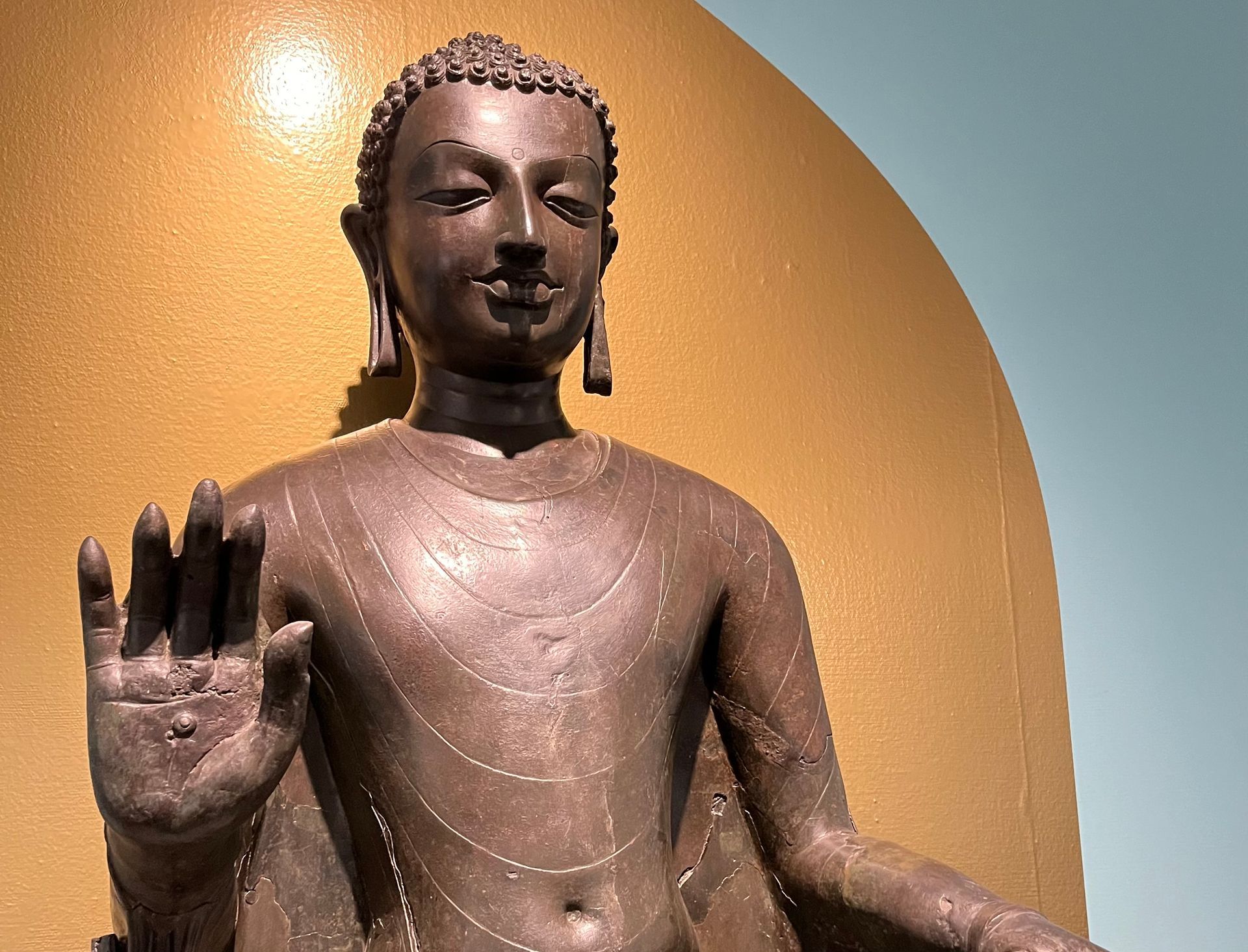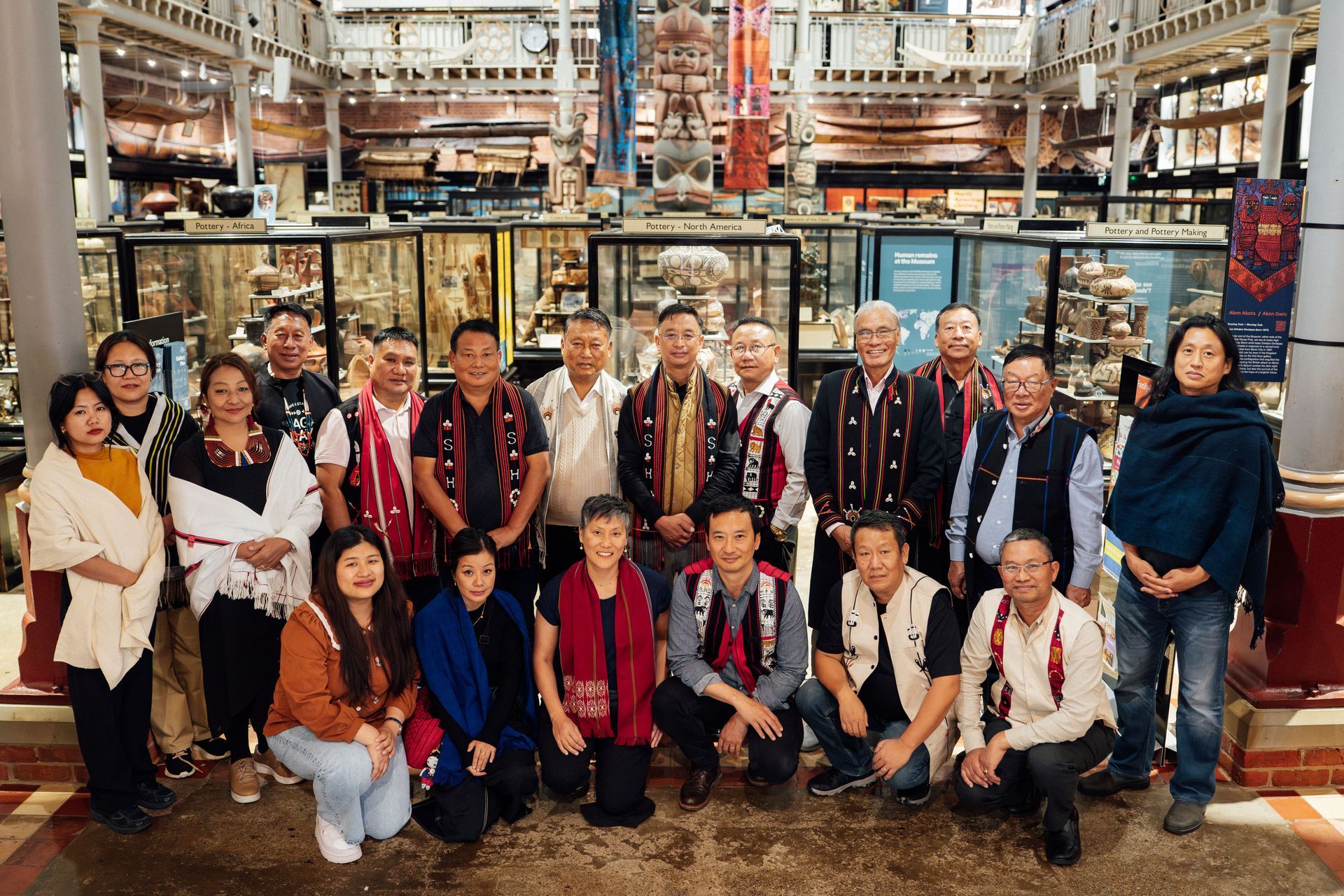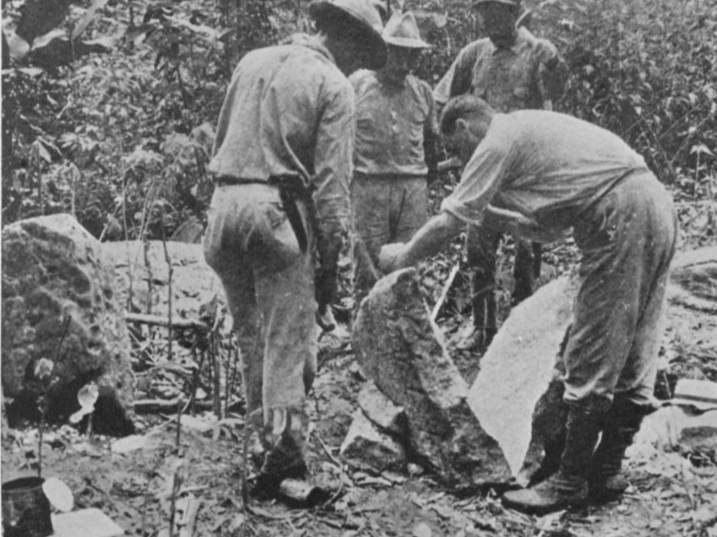Cultural Restitution
SHARE ARTICLE
Look north for a city determined to expose and address colonial injustice. Whether its voting to return looted cultural artefacts, commissioning an audit of historic connections to slavery or selecting a Barbadian-born, Glasgow-resident artist to represent Scotland at this year’s Venice Biennale, the City of Glasgow is setting an impressive pace.
A cross-party Working Group for Repatriation and Spoliation, reinstated by the City Council last August, met in March this year and recommended the return of important cultural artefacts to communities in India, Nigeria and North America - the largest ever repatriation from a Scottish museum. Their recommendation was approved by the Council’s City Administration Committee at a meeting held earlier this month (7 April).
Major repatriations will include the return of seven Indian antiquities - the first repatriation of its kind from any UK museum. Six of these objects were stolen by their donors from Hindu temples and shrines during the 19th century; a seventh was purchased illegally, before being sold and smuggled out of India. All seven objects were donated to the City’s museums collection.
The Indian government has agreed to meet the full costs of these repatriations and is meeting with Glasgow officials later this month to consider export and logistical issues.
As Returning Heritage reported last August, much of this Working Group’s attention has been focussed on returning the City’s collection of Benin Bronzes. The Council has now agreed that 17 of about 29 Benin artefacts held across the City’s collections should be returned to Nigeria, as these items are all associated with the looting of Benin City by the British expedition in 1897. The provenance of Glasgow’s other Benin items remains uncertain.
The Minutes of the Committee’s meeting suggest the cost of their return to Nigeria will be around £30,000. However, the Minutes also confirm the artefacts may remain in the City for the time being as loans, ‘until such time as transit is requested by NCMM or becomes practicable’.
Twenty-three years after Glasgow City Council handed back a Ghost Dance Shirt to the South Dakota Cultural Heritage Center, the Council also confirmed they are now ready to repatriate a further 25 Lakota cultural items, all of which, like the Dance Shirt, were sold or donated to the City’s museums by George Crager in 1892. Some of these are personal items removed at the massacre following the Battle of Wounded Knee in 1890 and belong to named ancestors of the Cheyenne River Sioux Tribe and Oglala Sioux Tribe. The cost of these repatriations is estimated at around £40,000.
“The return of these objects from Glasgow Life Museums’ collection to their rightful owners represents the largest-ever repatriation of cultural artefacts from a Scottish museum and is a significant moment for our city.”
Duncan Dornan, head of Museums and Collections at Glasgow Life
“By addressing past wrongs," Dornan added, "we believe these returns will, in a small way, help these descendant communities to heal some of the wounds represented by the wrongful removal of their cultural artefacts, and lead to the development of positive and constructive relationships between Glasgow and communities around the world.”
This commitment to understand more about the City’s uncomfortable legacies and, in particular, to its historic connections with slavery, is reinforced by a new report published this month into Glasgow’s links with the transatlantic slave trade.
Glasgow, Slavery and Atlantic Commerce: An Audit of Historic Connections and Modern Legacies, authored by Stephen Mullen, doesn’t make recommendations on what to do next. Instead, it uses the research the City commissioned into residents with slavery connections between 1603 and 1838 as a platform for public consultation. It’s the same process the City Council followed in 1998, when media coverage and public hearings helped inform the Council’s decision to return the Lakota Dance Shirt.
Major findings of the Audit include donations received by the City from individuals connected to Atlantic slavery, as well as the identification of 11 major buildings in Glasgow connected to these individuals and 62 Glasgow streets and locations that have a “direct” or “associational” connection to slavery. The report also notes that eight of these individuals are commemorated across multiple monuments across the City.
“Whilst there is now a manufactured controversy around the few statues included in the audit,” the report states, “the overall findings confirm what is generally accepted amongst historians of imperial Scotland: the direct and multiplier effects of Caribbean slavery and its commerce run deep into Scottish society, and had a transformative effect on national development overall.”
The decolonisation theme also forms a central part of the work of Alberta Whittle, an artist born in Bridgetown, Barbados who's been a resident of Glasgow for many years. Selected to represent Scotland in this year’s Venice Biennale, Whittle’s often site-specific installation work draws on the same kind of research into the African diaspora and the legacies of colonisation the City’s own report covers in its Audit on slavery and Atlantic commerce.
All three initiatives demonstrate a striking willingness by the City of Glasgow to confront uncomfortable legacies and a determination to address its past wrongs.



